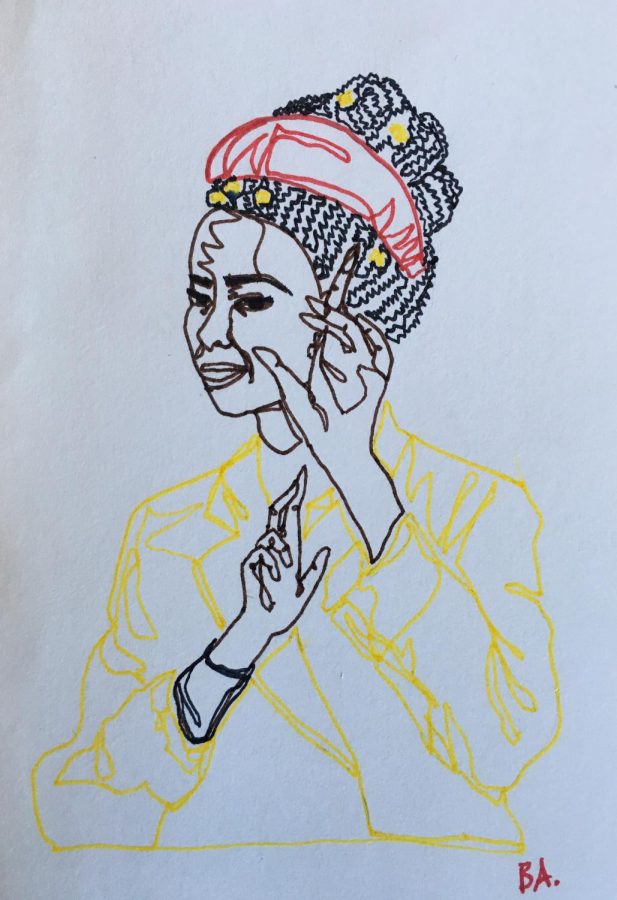Amanda Gorman: The Youngest Known Inaugural Poet
February 26, 2021
The presidential inauguration on January 20th not only gave the country a chance to witness the new administration take control but also gave the Democratic Party hope for a brighter political future. Among words and songs from various influential figures, the country was introduced to the breakout poet Amanda Gorman with her words of optimism for the future ahead.
Gorman joined the tradition of introducing the new president with a poem to welcome the next administration to office. She was contacted in late December by the Biden inauguration committee and was allowed freedom with the direction of her poem. Gorman wrote and performed her poem, The Hill We Climb, making her the youngest known inaugural poet in United States history at just 22 years old. Her poem focused on hope and unity, which posed as a challenge as she was given this responsibility at, as the New York Times stated, “a moment when Americans are reeling from a deadly pandemic, political violence, and partisan division.”
However, Gorman did not disappoint. Cherace Lin ’23 shared, “Coming from a creative perspective, she’s so unbelievably talented at what she does. She spoke with such grace and certainty that I really admired and I could go on, but she’s such a great example of representation that I hope continues rather than being seen as good enough!” Gorman’s words show a mixture of confidence for a brighter future while simultaneously understanding and acknowledging the harmful past. She writes a vision in which we all “rebuild, reconcile, and recover” from times that tried the US’s solidarity, as stated in her inaugural poem. She recognizes the troubles the US has faced and redefines the state in which the country should be headed towards. In Gorman’s The Hill We Climb, she writes, “We are striving to forge a union with purpose / to compose a country committed to all cultures, colors, characters and / conditions of man.” She creates imagery of unity and inclusivity which appears to be far from the state the US is in now. In response to Gorman’s performance, Nico Rimer ’23 responded, “The poem with her performance was able to provide a balance between hope and despair. The promise of tomorrow, with the brutal reality of today.”
The eloquently spoken poet was able to not only create an incredibly put-together poem but an experience that was motivational and inspiring. Margaret Rowe ’23 commented, “I think Amanda Gorman’s intentional emphasis on certain words in her poems do a lot in terms of communicating the essence of what she’s trying to put forth, and hearing her recite her poems is extremely powerful, more so than reading them, because she so clearly conveys tone when speaking.” Gorman was able to effectively combine personal words and insights into the poem from the standpoint of a young Black woman. In her inaugural poem, Gorman shared, “where a skinny Black girl / descended from slaves and raised by a single mother / can dream of becoming president / only to find herself reciting for one.” She presented a perspective that is commonly silenced and gone unacknowledged which provides hope for a future that will see more voices like hers heard. Rosa Boehm ’23 shared, “Amanda Gorman defies society’s expectations by proving to women everywhere, that age and color does not define the success of a person.”
While the inauguration drew new attention to Gorman, poetry is not a new form of expression for the writer. In 2014, she was awarded as the Young Poet Laureate of Los Angeles and was later named the country’s first National Youth Poet Laureate in 2017. Her career does not seem to be ending anytime soon as she is set to publish two books, The Hill We Climb and Other Poems and Change Sings, this upcoming September.










